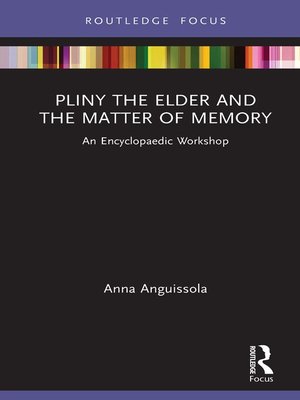Pliny the Elder and the Matter of Memory
ebook ∣ An Encyclopaedic Workshop · Young Feltrinelli Prize in the Moral Sciences
By Anna Anguissola

Sign up to save your library
With an OverDrive account, you can save your favorite libraries for at-a-glance information about availability. Find out more about OverDrive accounts.
Find this title in Libby, the library reading app by OverDrive.



Search for a digital library with this title
Title found at these libraries:
| Library Name | Distance |
|---|---|
| Loading... |
The Roman official and intellectual Pliny the Elder's Natural History constitutes our primary source on the figural arts in Classical antiquity. Since the Middle Ages, Pliny's encyclopaedia has enraptured the imaginations of its readers with anecdotes and narratives about the lives and accomplishments of the great artists of the Greek past. This book explores the ways in which materials and artistic processes are constructed in Natural History.
In doing so, this work reflects current developments in the study of Graeco-Roman art, where the scientific analysis of sculptural stones, pigments, and metal alloys, as well as a more detailed understanding of technologies and workshop practices, has imposed radical changes in the methods and theoretical models used to approach ancient artefacts. The argument considers the role of materials in discourses on Nature, as well as their semantics and the language used to account for artistic creation. Discussion of artistic techniques addresses the discovery of resources and technologies, and the discursive implications of creation and viewing. By focusing on particular passages and exemplary case studies, this book explores the ideological, moral, and intellectual preoccupations that guide Pliny's construction of materialities and human ingenuity in a period characterised by a rapidly-evolving economic landscape. The material and performative aspects of artistic, manual creation provided this early encyclopaedist with the fundaments for constructing and explaining his view of Rome's imperial mission and, more specifically, of his own strategies as a collector and recorder of 'all' the memorable facts of Nature.
This book will be of significant interest to scholars of classical archaeology, Greek and Latin literature, social and economic history, and reception studies.







